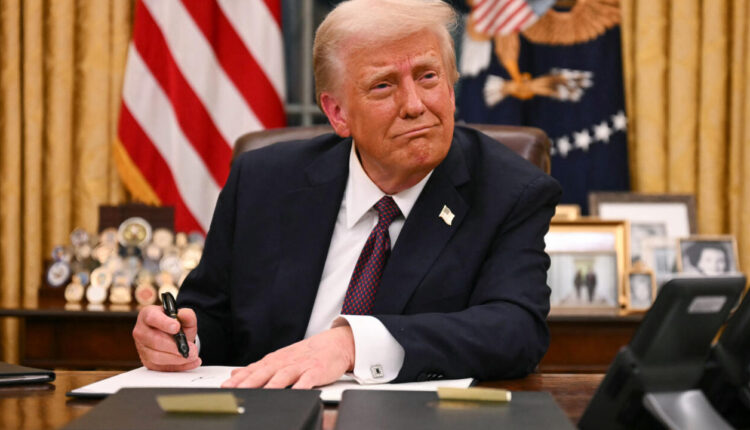Nigeria Left Out: What Trump’s Africa Summit Signals About Abuja’s Diminished Global Role
Former Vice President Atiku Abubakar has condemned Nigeria’s exclusion from an upcoming U.S.-Africa summit hosted by Donald Trump, calling it a damning indictment of President Bola Ahmed Tinubu’s leadership and the country’s shrinking diplomatic stature.
In a statement issued by his Special Assistant on Public Communication, Phrank Shaibu, Atiku said the decision to invite five African leaders while leaving out Nigeria is “not a diplomatic oversight. It is not a scheduling error. It is a verdict — scathing in symbolism and staggering in implication.”
As Trump prepares to welcome the presidents of Gabon, Guinea-Bissau, Liberia, Mauritania, and Senegal to Washington on July 9 for talks on commercial and strategic cooperation, Nigeria—Africa’s most populous nation and largest economy—will not be at the table.

For Atiku, the omission reflects a deeper malaise in Nigeria’s international standing. He described it as a symptom of what he called Tinubu’s “chaotic presidency,” which has rendered the country isolated, diplomatically weakened, and commercially irrelevant.
“We’re not witnessing a simple scheduling oversight,” said Shaibu. “This is a serious diplomatic demotion. Nigeria is no longer seen as a necessary partner in shaping Africa’s future.”
Political analysts say the snub underscores growing global concerns about Nigeria’s direction under Tinubu, particularly regarding foreign policy and regional leadership.
As chair of the Economic Community of West African States (ECOWAS), Tinubu has presided over a fracturing of the bloc, with Mali, Niger, and Burkina Faso withdrawing in protest. Once 15 members strong, ECOWAS now stands at 12, raising questions about Nigeria’s ability to command influence in West Africa.
“Tinubu inherited a continent looking to Nigeria for guidance. Today, those same neighbors are charting their own path, often in opposition to Abuja,” Shaibu said.
Beyond diplomatic optics, the exclusion highlights Nigeria’s worsening investment climate. As countries like South Africa and Kenya engage Washington in bilateral trade talks, Nigeria’s foreign direct investment (FDI) has reportedly fallen to historic lows.
“We’re not just absent from Trump’s meeting. We’re increasingly absent from key trade conversations, investment forums, and global partnerships,” said Dr. Ogechi Okwuosa, a Lagos-based geopolitical analyst. “It’s a symptom of broader disengagement.”
Although the July 9 summit is not an official U.S. government event, it carries considerable symbolic weight, especially as Trump positions himself for another presidential run. His selection of participating countries may reflect a shifting U.S. strategy that favors smaller, more cooperative, and politically stable partners over traditional powerhouses facing internal instability.
“From Giant to Ghost”
In one of the most cutting remarks, Shaibu likened Nigeria’s diplomatic evolution under Tinubu to a fall from grace:
“From Giant of Africa to diplomatic ghost,” he said. “We are no longer invited to the table. We’re not even in the hallway.”
He warned that Nigeria’s absence from key strategic discussions could further marginalize it in global affairs, while its neighbors consolidate new partnerships and alliances.
Looking Ahead
As the world’s attention turns to the July 9 summit, the conversation in Abuja is far more introspective: Has Nigeria lost its voice on the global stage — and can it be recovered?
Observers agree that Nigeria’s next moves will be critical, both in rebuilding regional trust and reasserting its leadership role in Africa and beyond.

